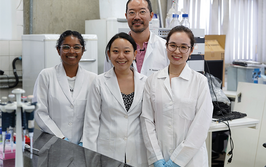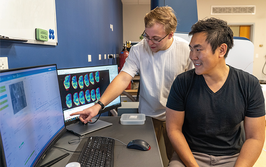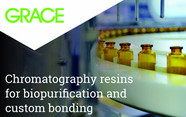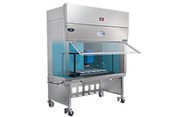Standing Up for GC-MS – and Good Science
Though a recent paper about the data-distorting potential of gas chromatography in metabolomic studies is far from perfect, it does at least draw attention to the absolute criticality of robust experiment design – on both sides of the argument. And that’s got to be a good thing.
Mingliang Fang’s paper in Analytical Chemistry, “Thermal Degradation of Small Molecules: A Global Metabolomic Investigation” (1), has been producing significant controversy since its appearance – and the paper’s conclusions are upsetting many people. Fang’s paper queries the entire concept of gas-chromatography mass spectrometry – a methodology used routinely in metabolomic investigations. By heating samples in a mimic of GC separation (GC generally uses a heat gradient to separate biomolecules) or derivitization followed by liquid chromatography, they observed significant changes in the metabolic profile observed – breakdown of triphosphates to monophosphates, for example.
On the face of it, it’s a scary concept; many of the metabolites we’ve been measuring for decades are being incorrectly assigned! However, there are a few important caveats regarding the methods used: whether the water in the resuspension solvents is an appropriate solvent for derivitized compounds and whether there was any evaporation of the derivitized samples, which might lead to some of the results obtained using LC-MS. There’s also the observation that some of the compounds of importance discussed, such as ATP, that break down under the heat treatment, don’t fly using conventional GC-MS techniques.
More generally, though, this is actually a problem with GC-MS ‘untargeted metabolomics’ – a type of metabolomics where one looks for metabolic changes across the whole of biochemistry (or at least as much of biochemistry as it’s feasible to measure). My group has focused on untargeted metabolomics – using LC-MS rather than GC-MS – for many years. It’s a fascinating and challenging area of research that has come under a lot of pressure over the last few years. Metabolomics – especially the ‘omics’ part of it – has the goal, for me, of analyzing the entire metabolome without bias. In reality, we’re very unlikely to ever achieve this goal (every methodology is biased in some way), but the possibility of discovering entirely new biochemistry is a significant draw.
Temperature is a consideration in LC-MS too - we spray the sample through a heated needle, into a heated interface. Thermal degradation products and complex adducts that increase the complexity of spectra were one of the first stumbling blocks in untargeted LC-MS metabolomics, but because of their elution at the same time as the molecular ion, we can track those changes much better than in GC-MS. However – and very importantly – we view untargeted metabolomics as either a hypothesis-generating experiment or as additional verification of a result obtained from another experiment. Validating the changes that we detect with metabolomics using alternative methods are key elements of good science in general, and this is equally true for GC-MS.
I know of few groups doing GC-MS metabolomics who don’t go down the targeted route of carefully analyzing standards to check retention times and fragment patterns to build up a method, and I would hope that anyone thinking of performing metabolomics as hypothesis verification would validate their method carefully, choosing appropriate controls and standards.
Metabolomics – or any analytical method for that matter – is inherently flawed. We are viewing reality through a cracked lens. But if we understand how the cracks distort the image, we can obtain useful information. As scientists, we’re trained to be skeptical and not just accept a result on face value. As such, Fang’s paper is an interesting, if not valuable, contribution to that skepticism.
I’m not going to throw away my GC-MS just yet though…
- M Fang et al., Anal Chem 87 (21), 10935-10941 (2015).
Karl Burgess is Head of Metabolomics at Glasgow Polyomics, University of Glasgow, Scotland.

















